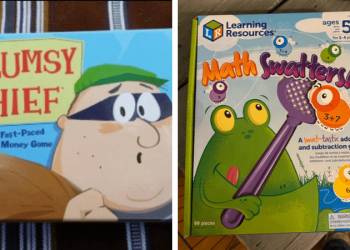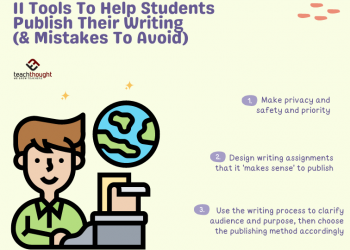Even though the public tends to regard academic history as boring and irrelevant, as a seemingly endless train of facts, dates and names, large numbers of people enjoy popular history.
Large swaths of the public adore stories, especially detective stories that claim to crack unsolved mysteries or that uncover hidden, forgotten or suppressed backstories. General readers, moviegoers and television viewers like histories that debunk myths, reveal history’s underside and revise the conventional wisdom, for instance, by baring the role of nomads in history, treating them not as violent hordes, but as figures who were responsible for promoting long-distance trade and the dissemination of ideas.
Oddities and peculiarities are appealing—for example, the best presidential insults. The public is also attracted to accounts that expose the flaws in Hollywood’s history. Another favorite: history’s big questions, what makes a great leader? How are wars won? What’s the impact of personality upon politics? What’s the impact of technology on social change? How do intellectual movements start and spread?
Educated readers especially like big-picture history books that claim to explain the rise of the West or the rise and fall of empires or that claim to draw practical lessons from history or that raise a philosophical issue, like whether assassins or acts of terrorism alter history’s course.
In recent years, counternarratives, of which The New York Times’s “1619 Project” is the most influential, have attracted a great deal of popular attention. Challenging established master narratives, these counterhistories foreground the voices, stories and struggles of those people who were previously relegated to history’s margins and lay bare forms of oppression, discrimination and violence that were for too long ignored.
It’s all too easy to dismiss popular history as little more than entertainment, a superficial if amusing diversion. Just stroll through the archives of Smithsonian magazine or American Heritage and you’ll be struck by the number of articles that present a celebratory history, with titles like “John Marshall Saves the Republic” or “Struggle for the Alamo: The untrained soldiers who fought at the Alamo believed freedom and the struggle for a better life were worth dying for.”
But we shouldn’t be too quick to reject popular history. Anyone who teaches history would do well to learn from popularizers’ ability to connect with a broader audience.
The best-liked kind of popular history is “what might have been,” or what is sometimes called counterfactual or alternate history. These are works that stress the role of accident (or contingency) in history and the decisions, good or bad, that shaped history’s direction.
You’d have to be utterly bereft of curiosity not to wonder what might have happened had:
- The Assyrian army not been decimated by disease and had succeeded in overwhelming Jerusalem in 701 B.C.E., thereby destroying the kingdom of Judah.
- The Mongols not turned back from European conquest in 1242.
- Pizarro not found potatoes in Peru.
- Robert E. Lee’s General Order No. 191 not been lost and made its way to Union major general George B. McClellan before the Battle of Antietam.
- The World War II Allies failed to break the German cipher machine.
- The D-Day invasion been repulsed.
- Franklin Roosevelt not replaced Vice President Henry Wallace with Harry Truman.
Sometimes, counterfactual histories focus on events that didn’t happen but almost came to pass, like George Washington nearly dying of influenza in 1790 or the near assassination of Franz Joseph I of Austria-Hungary in 1910.
For a long time, professional historians scorned counterfactual history, and some, like the eminent British historian Richard Evans, still do. His Altered Pasts: Counterfactuals in History argues that the “what if?” approach reduces history to chance, undercutting the power of structural forces and encouraging wild, ungrounded speculation at the expense of serious historical understanding. Evans attributes counterfactual history’s appeal to those all-too-human psychological needs, above all, a sense of regret and disappointment about past mistakes and missed opportunities.
No historian has done more to address counterfactual history’s reputation for flippancy, superficiality and implausibility than Gavriel D. Rosenfeld, who in a slew of articles and book reviews and an important website, The Counterfactual History Review, has demonstrated that counterfactuals can, in fact, promote historical understanding as long as they obey certain basic ground rules: a counterfactual must be consistent with established historical facts, and it must alter the historical record as little as possible after an initial point of divergence (this is the so-called minimal rewrite rule). He offers a valuable typology that identifies various approaches to counterfactual history in “The Ways We Wonder ‘What If?’”
Counterfactual history is best understood as a kind of thought experiment that allows scholars and the public alike to better understand causality, sharpen their awareness of the variables that contributed to a historical outcome and view the past from altered perspectives. It offers a way to think about history’s biggest issues: determinism versus contingency, structure versus agency and what the Annales school viewed history as: tension between the longue durée and histoire événementielle—long-term developments versus headline events.
In recent years, counterfactual thinking has become much more widely practiced in areas outside the traditional domains of military history, international relations and science fiction. Economists, literary critics, philosophers, physicists, social and cognitive psychologists, sociologists, game designers, and serious novelists (think Philip Roth and Margaret Atwood) increasingly engage with counterfactuals and alternate histories, a trend examined thoughtfully in Dorothee Birke, Michael Butter and Tilmann Köppe’s Counterfactual Thinking—Counterfactual Writing. Counterfactuals can also be found in popular culture (e.g., The Man in the High Castle, The Ministry of Time and 11.22.63), video games and political discourse.
The reluctance of many scholars to embrace counterfactual thinking certainly makes sense. Why teach or study things that didn’t occur? But I think that hesitance to self-consciously consider counterfactuals is a mistake. Much as historical understanding of causation requires an acute awareness of contingencies and alternatives, the same thing is true in other disciplines, especially in the social sciences. As the Stanford political scientist James D. Fearon has argued, counterfactuals provide a compelling way to test hypotheses and causal models, arguments and explanations.
Let’s begin with an example from psychology. As the psychologist Daniel Kahneman has argued, contingent circumstances can greatly intensify negative emotions, including disappointment, envy, frustration, grief, guilt, outrage, regret and shame. Negative emotions are more powerful if an event:
- Was the result of action as opposed to inaction.
- Was within one’s personal control.
- Was a close call or near miss rather than a long shot.
- Could or should have been anticipated.
Or take economics. In evaluating a policy intervention, an economist must compare the effects of the intervention with a counterfactual, an environment in which the intervention did not take place. This is why the gold standard in evaluation is a randomized controlled design. But often such experiments are impossible, and it is necessary to posit alternative possibilities.
Among the most hotly contested topics of debate is the extent to which British industrialization depended upon the wealth generated by New World slavery, by providing a market for British goods; generating profits that underwrote investments in industry; supplying cheap raw materials; supporting the growth of banking, insurance, shipping and other industries; and stimulating consumerism, especially the consumption of sugar. Addressing this controversy inevitably requires an economist to posit an alternate reality.
How about political science? Here, too, counterfactual thinking can encourage political scientists to assess generalizations. Do assassinations change the course of history? In “Hit Or Miss? The Effect of Assassinations on Institutions and War,” Benjamin Jones and Benjamin Olken show that assassinations are more common than the public assumes and that “assassinations of autocrats produce substantial changes in the country’s institutions, while assassinations of democrats do not.”
What are the economic costs of civil wars? After examining some 20 civil conflicts, Stefano Costalli, Luigi Moretti and Costantino Pischedda find an average annual loss per-capita GDP is 17.5 percent that in turn varies according to a society’s degree of ethnic heterogeneity.
To address the question of whether the U.S. and China are headed for war, Graham Allison, the Douglas Dillon Professor of Government at the John F. Kennedy School of Government at Harvard University, observes that in 12 of 16 past cases in which a rising power has confronted a ruling power over the last 500 years, the result has been bloodshed. The challenge, then, is to identify differences as well as similarities in the cases being compared.
Is it the case, as Haverford College sociologist Mark Gould has argued, that “all arguments are counterfactuals”? As Gould puts it, in a gloss on a claim once made by Emile Durkheim, “we chose either to make coherent arguments, which are counterfactual, or to make assertions that are logically flawed, are no arguments at all.”
Here, Gould distinguishes between interpretations, which make no claims to generalizability or irrefutability, and arguments, theses, theories and generalizations, which do assume a counterfactual.
I think Gould is right: theorizing is not possible without counterfactuals. When we make an argument, we, implicitly or explicitly, consider alternate perspectives and counterarguments. As University of Chicago economist James J. Heckman puts it, “Blind empiricism leads nowhere.”
My takeaway: we in the academy have a lot to learn from popular history. Its stress on solving mysteries, detective work and yes, what-if questions should certainly inform our teaching. But it also can strengthen our scholarship by reminding us that our arguments and reasoning rest on causal claims and theoretical models that must be pitted against alternative, even if virtual or imaginary, counterfactuals.
Steven Mintz is professor of history at the University of Texas at Austin.
Source by www.insidehighered.com










